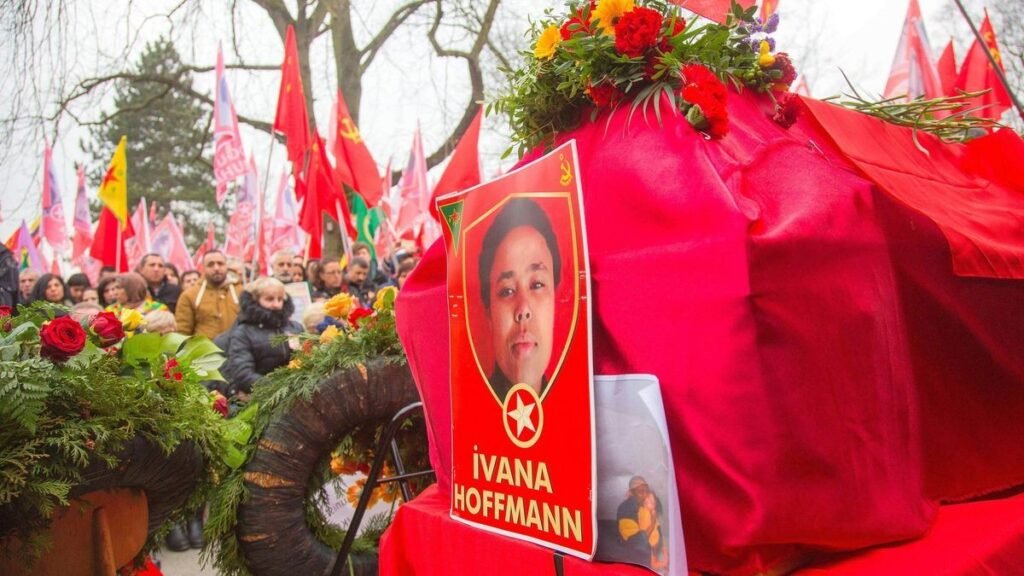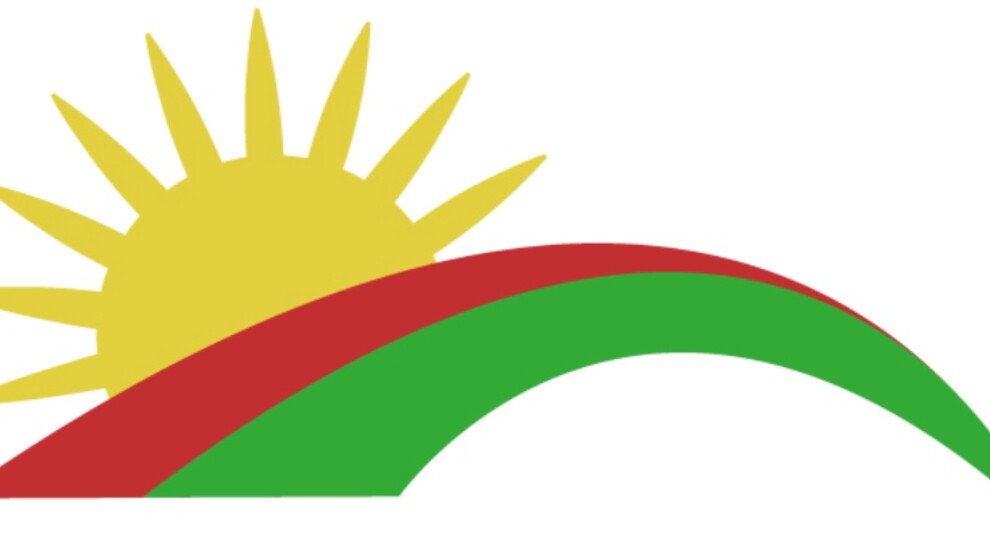
People’s Bridge was established in mid-2023 as a solidarity organization aimed at forging a connection between the oppressed and working-class communities in Rojava and their counterparts in Europe. This initiative arose from a collective effort by individuals from diverse backgrounds across Europe, united by a shared commitment to support the Rojava Revolution and its broader goals.
Unlike traditional mass organizations, People’s Bridge operates as a structured office, focusing its efforts on education, advocacy, and the promotion of awareness about the revolutionary developments in Rojava. The organization’s primary objective is to raise consciousness among European working-class communities about the needs and achievements of colonized Kurdistan, with a particular emphasis on the unique advancements of the Rojava Revolution.
People’s Bridge has organized various panel discussions and educational events to reach a wider audience. These events, hosted in different cities across Germany, have covered topics such as the establishment of the democratic self-governance system in North and East Syria, the adoption of the social contract, the tragic 2015 Suruc massacre in Northern Kurdistan, and the broader political developments in the Middle East, including the Al-Aqsa flood operation in Palestine.
In addition to its educational initiatives, People’s Bridge collaborates with prominent organizations, such as the Organization for the Unity and Solidarity of Peoples (SYPG) from Rojava, the Voice of Prisoners Platform (TSP), the Yezidi Women’s Council, and the internationalist organization Thawra. As it moves forward, the organization plans to expand its efforts to other European countries, with discussions and events scheduled in the United Kingdom and Austria in early 2025.
To follow closely, visit https://peoples-bridge.org/
Humanitarian Projects and Creative Initiatives
Beyond its advocacy work, People’s Bridge actively engages in humanitarian projects that align with its mission to support the Rojava Revolution. One notable project is Solardarity-Rojava, a campaign that raises funds to install solar panels in public institutions across North and East Syria. This initiative reflects the organization’s commitment to addressing the region’s infrastructural needs while fostering sustainable development.
A key creative goal for the coming year is the production of a documentary film about Ivana Hoffmann, an internationalist fighter who became an enduring symbol of solidarity and revolution. Ivana, a 19-year-old German-Togolese activist and member of the Marxist-Leninist Communist Party of Turkey/North Kurdistan (MLKP), traveled from Germany to Rojava to join the fight against the Islamic State.
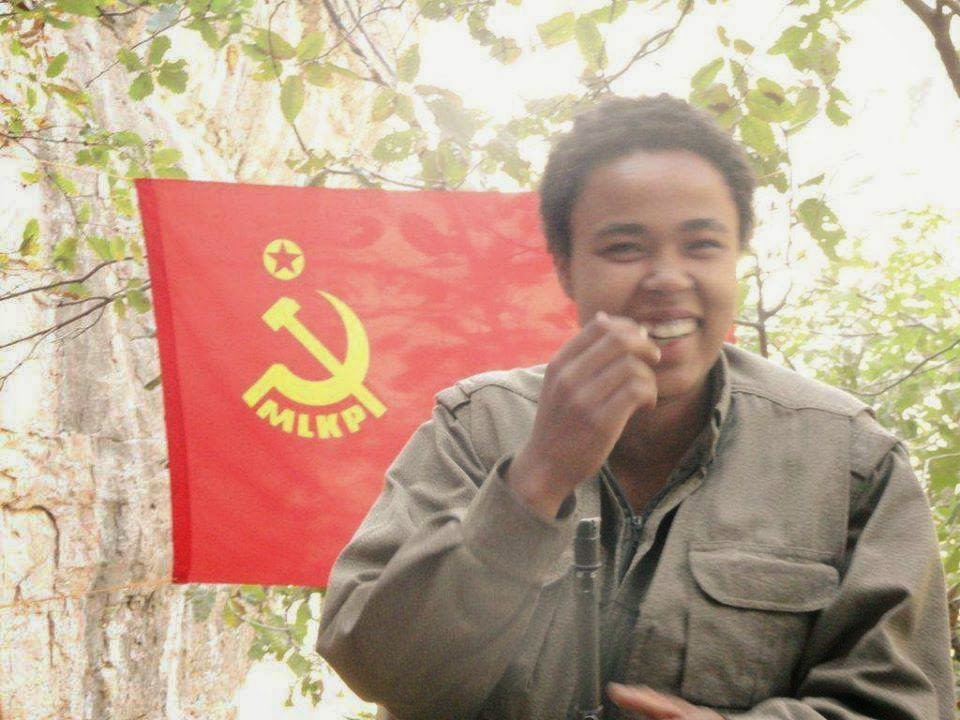
Tragically, she lost her life defending Til Temir in 2015, becoming the first internationalist to be martyred in the struggle against ISIS.
Known by her nom de guerre Avasîn Tekosîn Günes, Ivana inspired countless individuals worldwide to join the revolutionary struggle. The documentary aims to preserve her legacy and emphasize the importance of internationalist solidarity in modern revolutionary movements. People’s Bridge views this project as a means to make Ivana’s story accessible to future generations and to highlight the universal relevance of revolutionary ideals.
We would be very grateful for any financial assistance to support this project. If you would like to help, please send an email to info@peoples-bridge.org.
International Solidarity With Rojava: A Global Perspective
From the early days of the Rojava Revolution, communist parties and revolutionary organizations worldwide have expressed solidarity with the struggle for self-determination in Kurdistan. People’s Bridge regards the Rojava Revolution as a democratic and popular movement that represents a progressive system deserving of protection and support.
Numerous European communist parties, such as the Marxist-Leninist Party of Germany (MLPD), the Communist Party of Bulgaria, and the Maoist Party of Russia, have aligned themselves with the revolution. Many of these parties are members of the International Coordination of Revolutionary Parties and Organizations (ICOR), a coalition of over 90 communist groups dedicated to revolutionary principles. ICOR has played a direct role in supporting Rojava, including sending delegations to the region to assist with reconstruction efforts in Kobanê, a city devastated by ISIS. In 2016, ICOR facilitated the establishment of the ICOR Health Centre, which primarily serves as a maternity clinic.
The Rojava Revolution’s strong internationalist character has drawn comparisons to the anti-fascist resistance during the Spanish Civil War. The influx of international fighters during the Kobanê resistance led to the formation of the International Freedom Battalion, a coalition of communist and anarchist organizations. The battalion includes groups such as the MLKP, TKP/ML, and DKP/BÖG from Turkey and Northern Kurdistan, as well as international groups like the Revolutionary Union for Internationalist Solidarity from Greece.
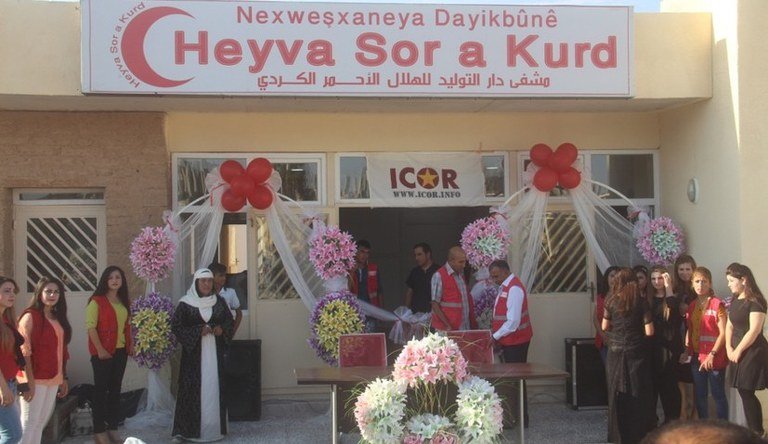
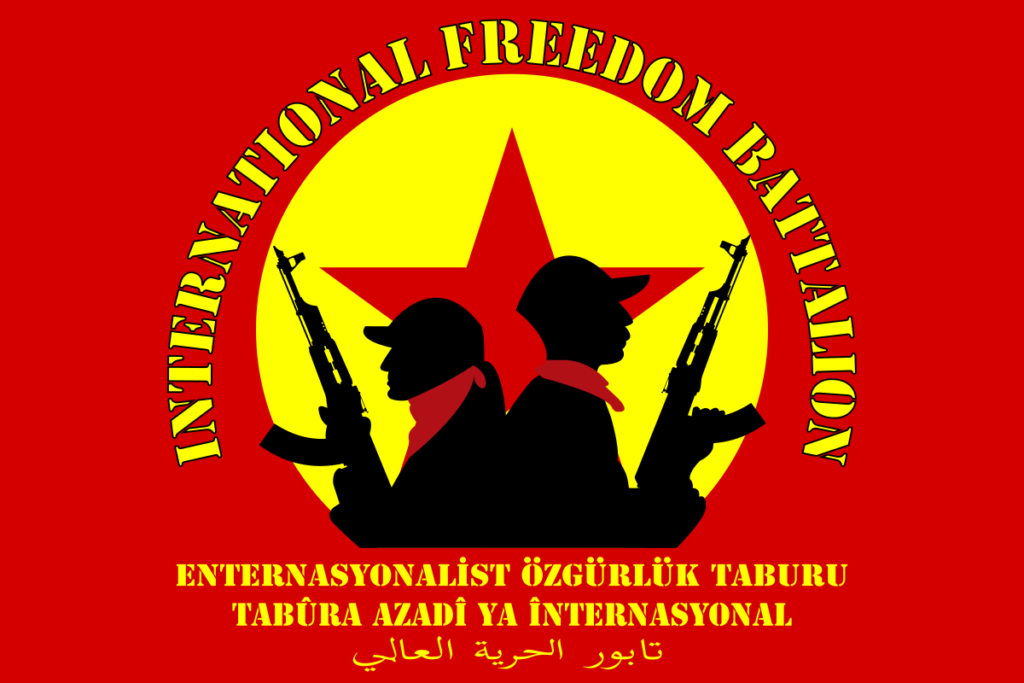
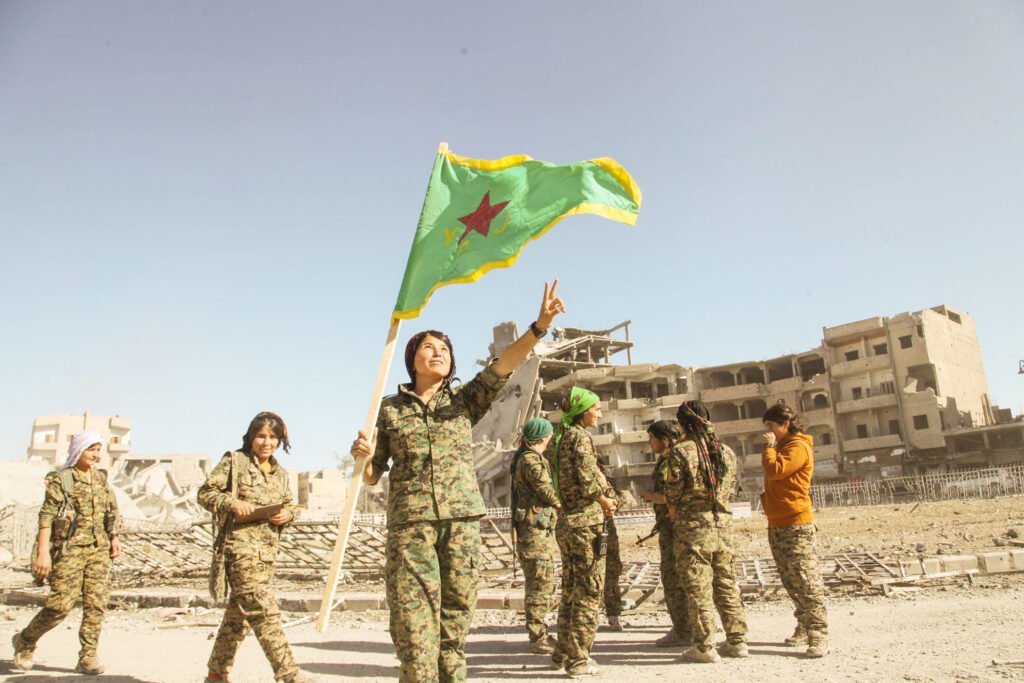
The Historical Context of the Rojava Revolution
The Rojava Revolution must be understood within the broader historical context of the Arab Spring and the revolutionary movements it inspired. While many uprisings in the region were constrained by bourgeois liberalism and lacked revolutionary leadership, the Rojava Revolution emerged as a unique and transformative movement. Following the Assad regime’s withdrawal of forces from northern Syria, the Kurdish population organized and armed itself, breaking free from decades of Syrian colonialism to establish a democratic system.
The revolution’s achievements in women’s liberation stand out as some of its most significant contributions. The Women’s Protection Units (YPJ) played a critical role in combating the Islamic State, marking a historic moment in the struggle for gender equality.
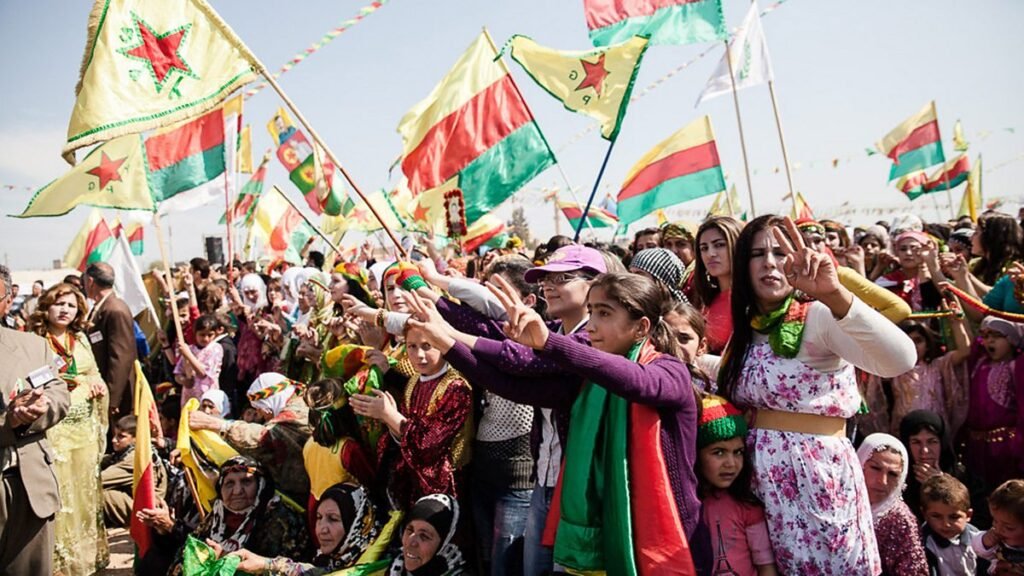
The adoption of a social contract for democratic self-governance in 2023 enshrined women’s rights, including gender parity in governance through the co-chair system and legal reforms such as the prohibition of polygamy and child marriage.
While the Rojava Revolution is not a socialist revolution, it represents a vital step toward building a more equitable society and serves as a model for revolutionary movements worldwide. Its success demonstrates the potential of grassroots democracy and internationalist solidarity to create meaningful change.
Challenges to Solidarity and the Future of the Movement
Despite its accomplishments, the Rojava Revolution continues to face significant challenges. Western powers, which initially supported the YPG militarily, later sought to suppress Rojava’s revolutionary ideals by banning demonstrations and criminalizing the display of YPG/YPJ symbols.
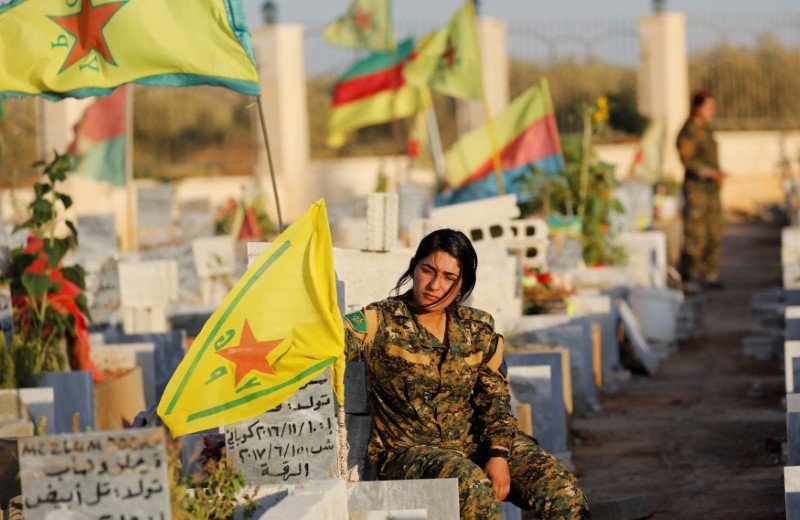
Meanwhile, Turkey’s ongoing war against Rojava has persisted for over a decade, further straining the region’s resources and resilience.
Geopolitical crises, such as the war in Ukraine and the Al-Aqsa flood operation, have shifted global attention away from Rojava. Nevertheless, People’s Bridge remains committed to revitalizing solidarity efforts and uniting the Rojava Revolution with other struggles of oppressed peoples and working-class movements.
The organization emphasizes the interconnectedness of Kurdish and Palestinian resistance, advocating for joint actions and alliances to confront imperialist forces. By fostering collaboration and amplifying the principles of democratic self-governance, People’s Bridge aims to inspire similar movements globally and challenge the systems of oppression perpetuated by imperialism.
Honoring the Legacy of Revolutionaries
As a tribute to the revolutionary spirit of figures like Ivana Hoffmann, People’s Bridge calls on progressive forces worldwide to renew their commitment to solidarity with Rojava. By organizing demonstrations, raising awareness, and supporting humanitarian projects, individuals and organizations can help ensure that the Rojava Revolution continues to serve as a beacon of hope for oppressed peoples everywhere.
Through its ongoing efforts, People’s Bridge seeks to inspire a new generation of revolutionaries dedicated to justice, equality, and international solidarity. By connecting Rojava’s struggle with broader global movements, the organization envisions a future where the ideals of democracy, liberation, and resistance become a reality for all.
